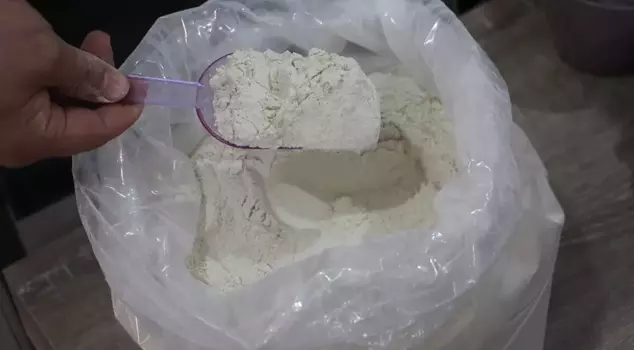
16.12.2024 15:51
The orchid plant, which is produced the most in Samsun, Turkey, and was protected in 1975, has a kilogram price that competes with gold. The price of just the powdered form of salep is finding buyers at 6,000 TL per kilogram.
The treasure of nature, the salep plant, has a price that competes with gold. The price of just one kilogram of salep powder is finding buyers at 6,000 TL.
PRODUCTION IS MOSTLY DONE IN SAMSUN
The salep plant, which has been protected since 1975 under the Convention on International Trade in Endangered Species of Wild Fauna and Flora (CITES), is primarily produced in Turkey, especially in Samsun. This year, the production of salep for propagation purposes in Samsun reached 63 tons over an area of 115 decares, while food-grade salep production was recorded at 42.5 tons over an area of 71 decares. In addition to Samsun, salep is also produced in provinces such as Aydın, Balıkesir, Kahramanmaraş, and Burdur.
"IT IS BEING MARKETED AS PURE"
Hakkı Karaman, the President of the 19 Mayıs Ecological Producers Education and Solidarity Association, stated, "The purchase price of the salep we produce is expected to be 500 TL in the spring of next year. When dried, 1 kilogram comes from 5-6 kilograms. This means the dry price will be around 3,000 TL, depending on the drying consistency. After grinding and processing, the packaged product is being marketed as pure by our company. The price for this will be 6,000 TL per kilogram. We recommend using this product without additives due to its high economic value and health benefits. We have heard that our ministry has declared 2025 as the year of medicinal aromatic plants to promote its wider use in our country. We want the necessary support to be provided for increasing production in this regard," he said.
"PRODUCT QUANTITY IS HIGHEST IN 19 MAYIS DISTRICT"
Karaman noted that 12-13 million TL in revenue was generated from salep in 2024, stating, "During the 2024 harvest season, the amount we received from farmers producing in our 19 Mayıs district and various other districts was approximately 25 tons. A portion of this was dried and processed, while some was sold in its dry form to other companies. This generated approximately 12-13 million TL in revenue for our district. Considering the whole of Turkey, the firms or producers that started this business after us have high costs, so they started in small areas and are currently in the propagation phase, which is why the amount of product released to the market is highest in the 19 Mayıs district. The amount of product released as food in other provinces is very small. On average, considering the whole of Turkey, there are currently about 10 tons of processed products released as food," he said.
"OUR FARMERS ARE HESITANT"
Karaman also reacted to the fees planned to be charged to those who will produce salep for the first time, stating, "A letter published on November 25, 2024, indicated that the salep plant is among the natural flowering bulbs and that the production must be identified on-site, with the first registration and the update of the Farmer Registration System (FRS) requiring a fee of 1,745 TL per farmer, and another 1,745 TL fee during the harvest period in April-May. Our farmers are hesitant about this. Charging such a fee for a food product raises concerns that it may set a precedent for other food products, hindering producers. We are initiating a process regarding this. We will inform citizens again about the non-payment of this fee after reaching an agreement in our discussions with the ministry," he said.
"UTILIZATION EFFORTS ARE INSUFFICIENT"
Karaman stated that Turkey has 3,700 endemic plant species, surpassing Europe, but the utilization rate is only 0.4%. "According to the report of the International Plant Research Commission in 2019, it is said that the number of plant species that can be utilized in all European countries is around 700. It is reported that approximately 3,700 species have been identified only in Turkey. The utilization rate in Europe is 74.5%, while in Turkey, it is 0.4%. We see that the efforts made in this regard are insufficient. We established the Ecological Producers Association in 2014 with the aim of contributing to our country by bringing plants that grow in their own geography and climate, which are beneficial to health and the economy, into agriculture after conducting studies," he said.